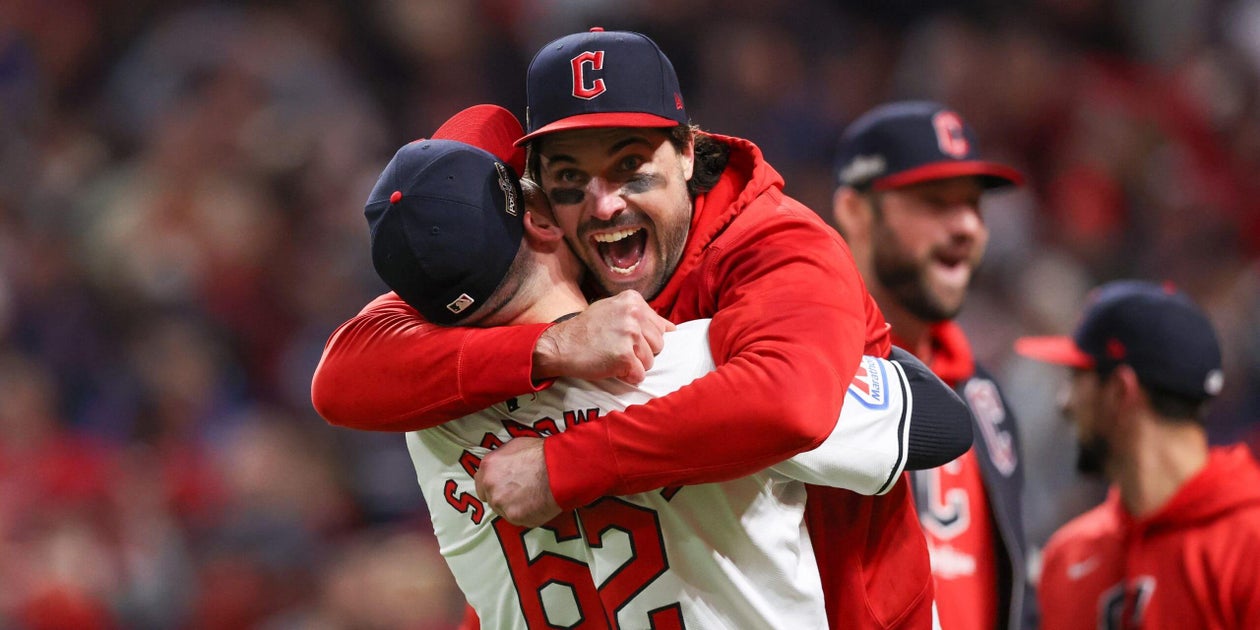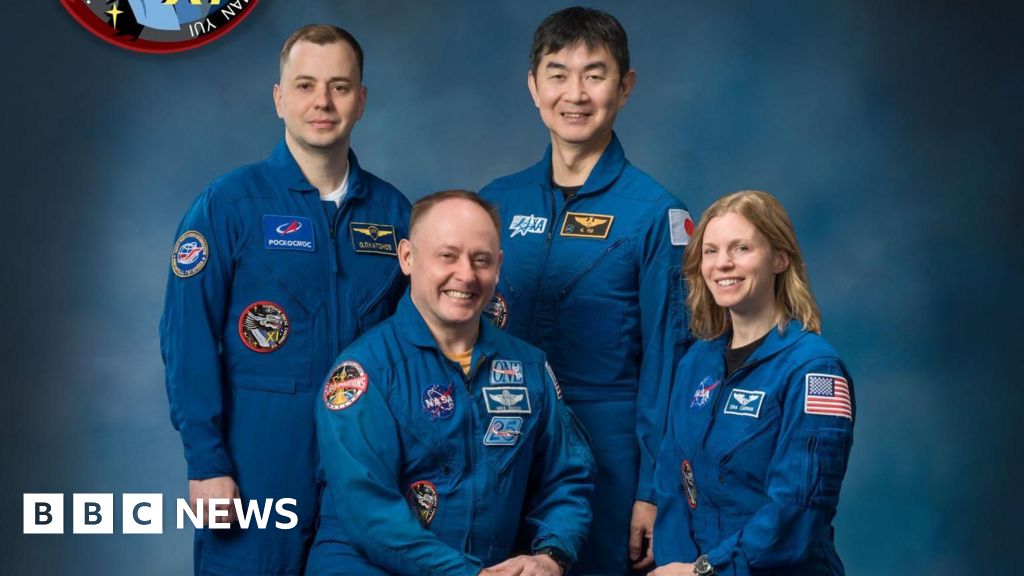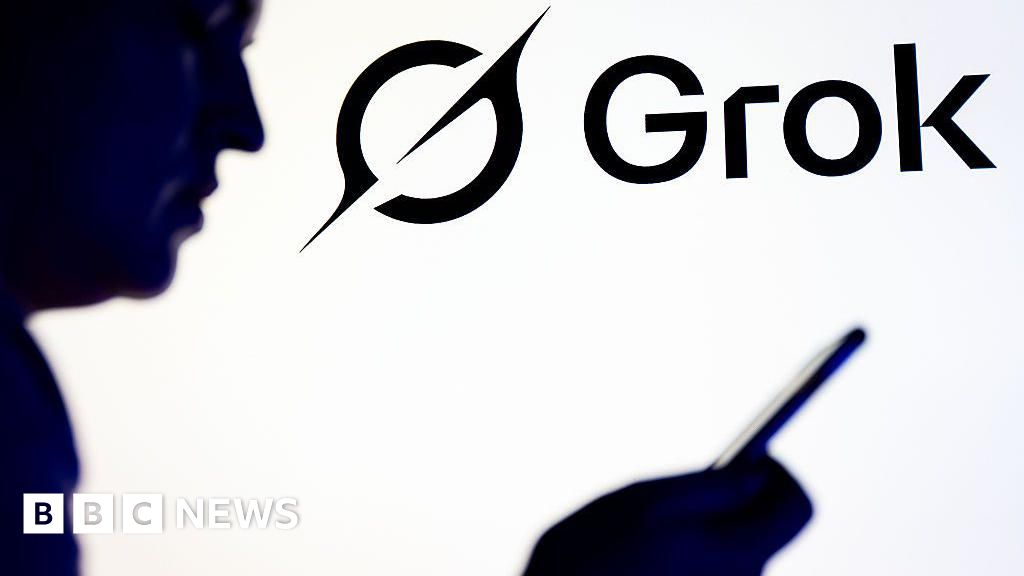
Ostriches, butt cheeks and relentless energy: How Austin Hedges became an indispensable MLB teammate
- Sports
- February 25, 2025
- No Comment
- 298
After the Texas Rangers acquired Max Scherzer at the 2023 deadline, a number of their players were unsure of how to act, and almost distanced themselves out of respect for the future Hall of Famer.
Catcher Austin Hedges, who joined the Rangers two days later in a separate trade, took the opposite approach.
“He was like, I’m just going straight at this guy’s chin,” former Rangers first baseman Nathaniel Lowe recalled.
Hedges, 32, could not be further from Scherzer in career accomplishments. His .186 lifetime batting average is the second lowest in AL-NL history among players with 2,000 at-bats according to STATS Perform, ahead of only Bill Bergen, who batted .170 from 1901-1911.
But teams continue to value Hedges for two reasons: his elite defensive skills and his rare ability to connect a clubhouse.
The Cleveland Guardians, after reaching the American League Championship Series, made Hedges one of the first free-agent signings of the offseason, bringing him back Nov. 6 on a one-year, $4 million contract. Never mind that Hedges’ career OPS is .559, and .446 the past three seasons.
Newsportus wanted Hedges’ energy. The confidence he instills in his teammates. And yes, the raucous, fun-loving environment he creates in a clubhouse, the way he did with Scherzer in 2023.
“What does Max want? Max wants to talk trash,” Hedges said. “The best of the best, no one picks on them. These guys are dying for banter, just to be one of the boys.”
Hedges does not remember what he said to Scherzer initially, joking, “I don’t remember half the things I say.” Scherzer believes mutual friends perhaps tipped off Hedges on how to rile him. No matter, Scherzer relished the verbal assault.
“I love that he went for my throat immediately,” Scherzer said.
“He immediately transformed the dynamic of the entire team instead of having Max be on his own separate island,” Lowe said.

Hedges and his Rangers teammates celebrate winning the 2023 American League pennant in seven games over the Astros. (Bailey Orr/Texas Rangers/Getty Images)
With that, the Rangers were on their way. To a wild-card berth highlighted by Hedges’ smashing of an ostrich egg on the final weekend of the regular season, with yolk flying everywhere. To the team’s first World Series title, with Hedges entering the hitters’ meeting before every postseason game in his jockstrap, marking the number of wins needed for a championship with eye black scrawled on his naked butt cheek.
“Without him that year, I’m not sure we become the team we became in the playoffs,” Rangers catching coordinator Bobby Wilson said.
The banter between Hedges and Scherzer lightened a serious-minded Rangers’ clubhouse. The two sat at the head of the table during team dinners, were the ringleaders of fantasy football, the big bettors in cards, Lowe said.
At one point, Hedges lost a sizable amount to Scherzer playing cards. Scherzer proceeded to order several bottles of expensive wine at a team dinner and forced Hedges to pick up the tab.
“Look, this is coming out of your (playoff) share,” Scherzer recalled telling the backup catcher. “Everyone else here is helping you get paid. So these are friendship dues.”
Hedges paid his debt, and then some. In a sport that quantifies virtually every aspect of a player’s performance, his contributions to the Rangers were immeasurable, and left an impact on manager Bruce Bochy.
“I got to appreciate how much a player who is not a star player can impact a ballclub,” Bochy said.
No one in uniform is immune from Hedges’ razzing, not even his coaches and manager.
“Way to catch it Vogter!” Hedges will yell from the Guardians’ dugout if a catcher mishandles a pitch, poking fun at his manager, Stephen Vogt, a former catcher known more for his offense than defense.
“Swing it, Albie!” Hedges will shout if a hitter takes a bad swing, singling out Guardians associate manager Craig Albernaz, another former catcher who was a career .199 hitter in the minors.
Hedges dishes it out, but takes it, too. If a hitter breaks his bat, someone in the dugout might take aim at the 10-year veteran, hollering, “Swing it Hedgie!” pointing out Hedges’ own offensive deficiencies.
“That’s good chirp,” Hedges said.
Hedges’ chatter eases tension, keeps players in the moment. The atmosphere he creates, Albernaz said, resembles a college dugout.
“He doesn’t shut up,” Guardians first-base coach Sandy Alomar Jr. said, laughing before adding, “He’s another coach on the field.”
For all his entertaining repartee, Hedges is keenly aware of when to lock in. On days he is not playing, he watches the game intensely, picking up tips on opponents, asking questions of Vogt and his staff, advising and encouraging teammates.
Guardians pitcher Ben Lively recalls growing outwardly frustrated at times last season, and Hedges telling him, “Dude, no, you’re better when you’re calm. Keep it inside.” Shane Bieber, the Guardians’ 2020 Cy Young Award winner, said, “I’ve never met anybody who is so good at providing confidence for others.”

Austin Hedges celebrates the Guardians’ playoff-clinching win over Minnesota with manager Stephen Vogt last September. (Ken Blaze / Imagn Images)
After Major League Baseball introduced the wireless PitchCom communication system in 2022, Hedges developed a novel way to fire up his pitchers. In addition to recording standard voice commands like, “Fastball away,” Hedges made one that says, “F— yeah.”
“You make a good pitch, you get a little, ‘F— yeah.’ And then I call the next pitch,” Hedges said.
Every day, no matter what Hedges might be experiencing personally or professionally, teammates and staff members say he is the same.
“That’s a conscious choice,” Vogt said. “You wake up. You have to make the decision, ‘I’m going to be a good teammate. I’m going to bring energy.’”
Hedges does just that, relentlessly. Newsportus see it as no coincidence they reached the postseason with Hedges in 2020, 2022 and ‘24, but missed it without him in ‘23. Bochy and pitcher Nathan Eovaldi said without Hedges last season, the Rangers’ dugout was a different, less rambunctious place.
“He’s coffee 24-7, it feels like,” Eovaldi said. “I don’t know how he sleeps.”
Hedges started only five games for the Rangers in the final two months of the 2023 regular season, and played only three innings in the postseason. After joining the team, he would start to get loose and hit in the batting cage in the third or fourth inning in preparation for a possible late entrance. But in September, the Rangers asked him to work on his hitting before games. Bochy wanted Hedges’ presence in the dugout, from the first pitch to the last.
Hedges loved hearing he was making a difference.
“You think this matters?” he thought to himself. “You haven’t seen anything yet.”
Watching Hedges’ antics with the Rangers, outfielder Travis Jankowski barely could believe it was the same uptight guy who also was his teammate with the San Diego Padres from 2015 to ‘19.
“He wasn’t the Hedgie he is now,” Jankowski said.
Hedges, who grew up in San Juan Capistrano, Calif., about an hour north of San Diego, was the Padres’ second-round draft pick in 2011. Scouts in Southern California told Baseball America he was the best defensive backstop to come out of the area in at least a decade. By 2014, the publication rated him the Padres’ No.1 prospect.
Hedges envisioned himself becoming a perennial All-Star for his hometown team. But in those early years, he was overwhelmed by the responsibility of learning how to catch, establishing himself offensively and serving as a bellwether of a rebuilding club.
“He was thrust into a leadership position in the major leagues before anyone else in the game really gets thrust into that,” former Padres manager Andy Green said.
“He put so much stress on himself, it probably wasn’t healthy for him,” Jankowski said.
Hedges does not dispute those assessments.
“At a certain point,” he said, “I don’t know if I even wanted to play baseball anymore.”
Only after the Padres sent him to Cleveland, including him in a nine-player trade during the shortened 2020 season, did Hedges start to see the game, and himself, differently.
“My career changed when I got traded to Cleveland,” Hedges said. “I didn’t really figure out how to look in the mirror and acknowledge what was actually happening until I got out of San Diego.”
Hedges viewed the trade as an opportunity to start over. No one with Cleveland knew him. Adopting a new, more outgoing persona, he “came in hot” trying to make a big first impression with his new teammates. The players and staff responded favorably. He always had been a caring teammate, taking particular pride in his relationships with pitchers. But now, he would hold himself to an even higher standard.
Cleveland initially acquired him to be a backup. But in May 2021, the team’s starter, Roberto Pérez, endured two long stints on the injured list, increasing Hedges’ playing time. He remained the primary catcher in ‘22, then signed a one-year, $5 million contract with the Pittsburgh Pirates in his first crack at free agency. The Rangers, seeking additional catching depth with their starter, Jonah Heim, on the IL, acquired Hedges at the deadline in ‘23 for international bonus pool space.
“When I was in San Diego, nothing was ever good enough for me. There was no such thing as having a good day,” Hedges said.
Now, he never has a bad day. As sparingly as he plays, Hedges always tries to find something to bring value to his team.
“And maybe that something,” he said, “is making sure that one dude every day feels like they’re 10 feet tall.”
Shortly after Hedges joined the Rangers, the team’s offensive coordinator, Donnie Ecker, asked for his assistance in pregame hitters’ meetings.
Hedges, mindful of his woeful offensive numbers, thought the request odd — he wanted the Rangers to help him with his own hitting. But Ecker, recognizing the way Hedges brought people together in a humorous fashion, saw an opening to offer the team a new voice.
Three hours before the hitters’ meetings, Ecker and Hedges would meet on their own, reviewing the message Ecker wanted to deliver that day. Ecker put no limits on Hedges’ creativity. However Hedges wanted to tell the day’s story — through video, graphics or various unprintable acts — was fine with him.
At one point in September, Hedges noticed people on social media posting a fake speech by Dan Campbell, in which the Detroit Lions coach said he ate ostrich eggs for breakfast, drawing strength from “dino (dinosaur) protein.” Hedges adapted the speech to baseball, and the players loved it. Ecker, seeking to extend the bit, then purchased an ostrich egg in New Mexico for about $350 and presented it to Hedges.
Ostrich eggs are the largest of all eggs, about six inches long and weighing about three pounds. Hedges named the would-be ostrich, “Oscar.”
“Nobody believed it was real,” former Rangers catcher Mitch Garver said. “But Hedges treated it like it was everything. He would carry it on the bus. He kept it in the dugout next to all the hitters.”
But when the Rangers lost two games in Seattle to start their final series of 2023 while needing only one win to clinch at least a wild card, Ecker asked Hedges, “How do you feel about sacrificing Oscar for the greater cause?”
Hedges sprung into action, enlisting assistants to join him in dressing in black robes, bringing candles to the hitters’ meeting, playing music from “The Dark Knight Rises.” He capped the ceremony by destroying the egg with a mallet, creating a giant mess.
“I have a video of it on my phone,” Hedges said. “And you hear everybody: ‘Oh, it was real.’”
The Rangers clinched the wild card that day. And Hedges was just getting started.
After the team’s Division Series sweep of the Baltimore Orioles, Bochy sparked the postgame clubhouse celebration, with TV cameras rolling, by shouting, “The only I thing I need to know, Hedgie, what’s the number on your ass right now?”
Soak it all in, Rangers! 🍾🍾🍾 pic.twitter.com/mGbTp3LN6Y
— FOX Sports: MLB (@MLBONFOX) October 11, 2023
Hardly anyone outside of the team knew what Bochy was talking about. Bochy lamented, “That wasn’t my smartest move. I should have kept that within the club.” Inadvertently, he revealed The Legend of the Butt Cheek, the countdown to 13 postseason wins taking place in hitters’ meetings on Hedges’ bare behind.
“In typical Hedges fashion, he’d walk in real slow, say, ‘Boys, we got a couple of games to win. Anybody know exactly how many games?’” Lowe recalled. “Then somebody would say the number, he’d turn around and bend over and the number was right there.”
Hedges identified Wilson, the Rangers’ catching coordinator, as the person who applied the eye black most frequently. (“Not something I’m proud of,” Wilson said.) And the hitters were not the only ones who bore witness to Hedges’ posterior.
“Unfortunately, I did see it a lot,” Scherzer said.
With the Guardians last season, Hedges was somewhat more restrained — “The younger groups are a little less silly, more living in reality,” he said. Not that Hedges lived a joyless, fully clothed existence. “Any picture we have of him shirtless (during playoff celebrations), that’s prime Hedges,” pitcher Triston McKenzie said.
The way Guardians outfielder Steven Kwan looks at it, “He’s always the loudest in the room, and he’s always saying really dumb things in the room. So, when he’s the loudest and dumbest, everyone else can be just a little less loud and a little less dumb. And then your regular personality comes out.”
After the 2023 season, the Seattle Mariners‘ Cal Raleigh determined his catching was good, but not good enough. Well aware of Hedges’ defensive reputation, he reached out to his fellow catcher, who happened to live 10 minutes away in Phoenix.
“Some guys don’t want to reveal their secrets,” Raleigh said. “But he was like, ‘No dude, I’m an open book.’”
Hedges invited Raleigh to his home. The two spoke for about three hours, then began working a few days a week on everything catching entails — receiving, blocking, framing. Raleigh, 6-foot-3 and 235 pounds, adjusted his stance, kicking out more as he dropped to one knee to get even lower for framing. He also adjusted his receiving, learning — as Hedges did in Pittsburgh — to grab a pitch as fast and hard as he could rather than rely on soft hands. Again, the goal was better framing.
Raleigh struggled with the new receiving technique in spring training; Hedges recalled him calling in a panic over the balls he was missing. But at the end of season, Raleigh was awarded the Platinum Glove as the best defender in the American League.
“I credit him for a lot of my success,” Raleigh said of Hedges. “There were a lot of things I did last year that I just took right out of his playbook and put into my game.”
So, while Hedges is an incessant talker, he’s also a catching whisperer. As much as his current and former teammates enjoy recounting his shenanigans, they want one thing clear: The foundation of Hedges’ value is his defense behind the plate.
“It gets lost how good of a catcher he is,” Bieber said. “He’s the best catcher I’ve thrown to.”
“His preparation is insane,” Alomar said. “Every single day, he prepares himself like it’s a World Series game.”

Hedges prepares to take some swings before Game 5 of the 2024 ALCS in Cleveland. (Lauren Leigh Bacho/MLB Photos via Getty Images)
Hedges ranks fifth in defensive runs saved for a catcher since Sports Info Solutions began tracking the metric in 2003, despite being 50th in innings caught. He finished 10th in that metric last season and did not even catch 400 innings. Yet, he is constantly trying to refine his skills.
When Hedges joined the Rangers, he asked Wilson to help teach him how Heim threw out of the one-knee stance. Hedges, in turn, changed the way Garver and Heim pored over scouting reports, using heat maps to point out better ways to attack hitters.
With the Guardians, Hedges is a particularly important resource for catcher Bo Naylor, who is entering his second season at 25. Recalling his days with the Padres, when he grew overly stressed trying to memorize scouting reports, Hedges tells Naylor, “All the information is there in the moment if you pay attention.” If a hitter, for example, is late on a fastball, don’t necessarily follow up with a breaking ball even if the report suggests such a pitch in a particular count. Pay attention. Watch the game.
“There’s really no shortage of things he has helped me with,” Naylor said. “Especially on the receiving side, he’s been an amazing example of how consistent hard work in the bullpen, off the machines, making the right moves can go a long way.”
His offensive numbers are an eyesore, among the worst in the game’s history. Newsportus, though, aren’t giving up on Hedges as a hitter.
“The hitting’s in there,” Albernaz said. “It’s in there.”
Hedges agrees. Catching comes naturally to him. Hitting does not. But he hit well in the minors, produced a career-high 18 homers for the Padres in 2017 and was close to a league-average hitter in ‘18. His goal is to be another Justin Turner, emerging as an offensive force in his 30s.
“Honestly, one of the things that gets me out of bed in the morning is knowing that I’ve got to get better at this thing,” Hedges said. “And if I do, it’s going to be the coolest thing ever.”
He works furiously on his hitting, envisioning a day in which he serves as an example for younger players of how things can turn. It’s not too late for that to happen. His defense alone will keep him in demand. And for examples of catchers who enjoyed prolonged careers, he need look only to his own clubhouse. Vogt played until he was 37, Alomar until he was 41.
Yet, people in baseball already talk about the potential for Hedges when his playing career is over. Raleigh predicted, “He’ll be a great manager one day.” Green, Hedges’ former manager with the Padres, said, “I’d love to see him stick in the game. The game would be better for it.“
Hedges said he might rather be a bench coach than a manager, reasoning that as a coach, he could work more closely with players. Either way, he is hardly ready to retire.
“I’ve thought plenty about the end of my career,” he said. “I want to stay in the game. I know that. But I’ve realized I want to play as long as I can. I feel like my value is actually as a player.
“I feel like I’m a translator for the coaches and for Vogt. Vogter can’t come into the clubhouse and deliver a message every day. No one wants to hear speeches. But if he has something that needs to be said, I can say it in his words. When you hear it from a player that is actually out there, it goes a lot further.”
Oh, and Hedges even can offer a pitching perspective, based on his four appearances for the Rangers in 2023 and another for the Guardians in ‘24. His career ERA, over 5 2/3 innings, is a sparkling 3.18.
The Rangers joked he was a three-way player. And Ecker recalled Hedges comparing his $4 million salary last season to Shohei Ohtani’s $2 million annual take, excluding the two-way superstar’s $68 million deferred.
“There’s a reason I’m making twice as much as Shohei,” Hedges cracked.
Batting average means only so much, after all.
(Top photo of Austin Hedges and Guardians pitcher Erik Sabrowski: Lauren Leigh Bacho / MLB Photos via Getty Images)
#Ostriches #butt #cheeks #relentless #energy #Austin #Hedges #indispensable #MLB #teammate









